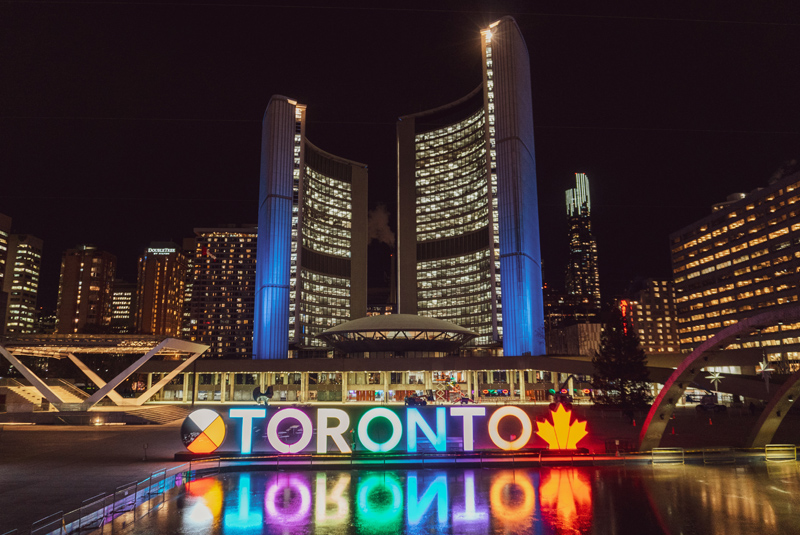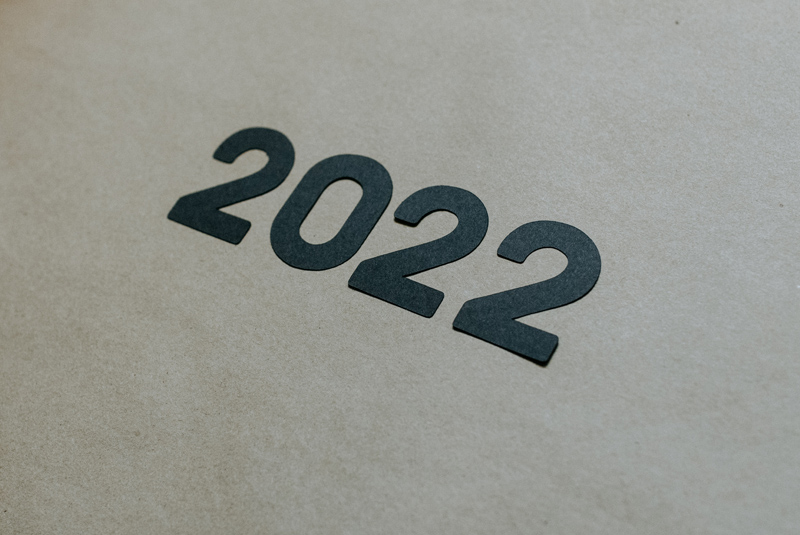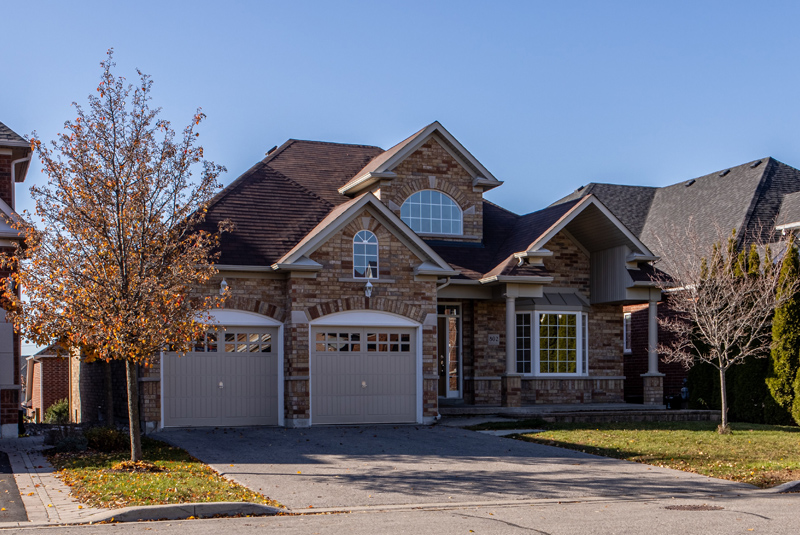February 14, 2022
Canada’s Housing Forecast for 2022
Share this article:

House prices in Canada continue to surge as we enter into 2022. In fact, an accurate term for the current market conditions may be over-valued. Some of the most expensive real estate in the world is to be found right here in our nation, which has been experiencing a relentless upward charge, irrespective of the pandemic, the economy in general, or anything else.
It’s not limited to the traditional hot markets, such as the Greater Toronto Area, or Vancouver. Across the country, 2021 saw a 5.4% increase in shelter costs, outpacing even the inflation rate, which is also on the rise.
Here’s a look at some of the drivers and possible outcomes for this year in the world of Canadian Real Estate, with a focus on our home turf here in Ontario and the Greater Toronto Area specifically.

New Home Prices Soared Last Year
Strong demand coupled with low inventories caused new home prices to leap over 10% higher than in 2020. This made 2021 go on record as the highest increase since the 1980s. The very hottest market in this segment was Cambridge-Kitchener-Waterloo, which saw an astounding 24.5% increase last year over the year prior. Analysts conclude this was a reflection of a move away from the largest metropolitan area in the province – the GTA – into the more suburban setting some 100 km to the west.
Supply and Demand in Canadian Real Estate
Analysts are actively studying the causes for this unbridled upward trend in housing prices in this country. They admit that the Canadian real estate market is a complex system, with a number of contributing factors. The bottom line, however, is that for the last several years, demand has outstripped supply – there are simply way more buyers than sellers out there, and obviously, new home construction is not keeping up, either. One of the main underlying reasons for this imbalance is continued population growth. Canada’s rate of population increase is the highest of all the G7 nations – Canada, France, Italy, Germany, the United States, the European Union, and Japan. Housing isn’t keeping up with all the newcomers flowing in. The basic rule applies – when something is scarce, its value goes up. Home supply is no different.
Then there is the spillover effect into the rental market. As housing becomes less and less affordable, more dejected buyers opt for renting. Guess what happens – demand for apartments goes up, supply goes down – and rent increases. There is some solace in the fact that landlords here in Ontario are bound to some rent controls; nevertheless the upward pressure is still there.

Interest Rates in 2022
One of the reasons why real estate has become such an attractive investment is that for many years now, interest and borrowing rates have been very stable. In fact, they have been on a downward trend for years. The prime lending rate currently stands at 2.45%. Believe it or not, it has been declining for over four decades, from a ludicrous high point in the early 1980s. Since 2010, the prime rate has hovered at this low level.
Such stability makes it very enticing for folks to jump into the real estate market. Even with inflated prices, the affordability of carrying a mortgage from low interest rates makes it possible for some to squeak their way into a starter home or small condo.
One of the reasons interest rates have stayed low for so long is that inflation was just the same way – low and stable. Even with fluctuations in certain commodities – namely, the price of oil and gas, the rate of inflation has been low, stretching back decades. Even pressure from ever-rising housing costs had little to no impact on inflation, largely because the wildest upswings were confined to the traditional hot markets such as the Greater Toronto Area, Vancouver and Calgary. This, of course, has all changed now – real estate has exploded across the board. But that’s not the only inflationary pressure.
We’ve all seen that prices in general have been rising. The price at the gas pumps is a good example. So is the price of food of late. Analysts and politicians debate over what the causes are:
- The great pandemic which began in 2020 and continues to this day has certainly had an impact. Anything that throws a wrench into the economy the way Covid did is bound to have an effect on the price of products and services.
- Then there was the government response, which was increased spending in order to help ordinary Canadians through the trouble times.
- Supply chain issues compounded things further, as demand for products rose and shipping delays put upward pressure on prices.
Economists have been warning of it for years, but 2022 may be the year it actually happens: Interest rates will rise. All the above turmoil, coupled with other inflationary pressures, and a red hot real estate market from coast to coast, and it seems inevitable that at some point, the Bank of Canada will make the move. There has been much anticipation, and in fact, some surprise that it hasn’t already happened. The government, though, chose to “stay the course” over the pandemic. The signals now are for an increase, come spring.

Where Canadian Real Estate Is In 2022
By one estimate, over 50% of Canadian families could not buy a home right now. By the end of 2021, the “typical” house in Canada was calculated to be valued at just under $800,000. By that measure, it would take a household approximately six years’ worth of savings just to make a minimum down payment – say 10% or $80,000. That leaves a mortgage of over $700,000. Regardless of the ability to make a minimum amount down on a house, there’s the issue of qualifying for a mortgage based on typical income and wage levels where they stand today. Even with rock-bottom interest rates, it would be a near-impossible financial load to bear for just about any individual or family. You would be very hard pressed to find a lending institution that would approve any such loan – the disparity is simply too great.
On the positive side, more than half of Canadians already own a home. The issue is mainly relegated to young people and, of course, newcomers, unless they have come into the country with enormous bank balances in their pockets.

Where The Future May Lie In Canadian Real Estate
Analysts are not painting a rosy picture, and the facts seem to back them up. They point out that a “correction” of the Canadian real estate market – typically pegged at a 10% drop – would bring the price of that “typical house” to somewhere around $720,000. That’s not exactly in the bargain zone.
Then there’s the concept of a “crash” of the market. The experts consider that to be a drop of 20% – definitely not inconsequential, especially if it was to happen suddenly and rapidly. But using that $800,000 benchmark for a typical home currently, it would bring the price down to the $640,000 range. Even a crash of this proportion would not have a huge impact for the majority of folks wanting in on the home ownership game. Upon examination, the experts point out, you’ll find that a crash of the market would merely reduce house prices to pre-pandemic levels – when it was already widely acknowledged to be out of reach for so many.
You see where this is going.
In theory, the economy could keep adding real estate crash after crash – lopping 20% of the typical house each time, and they would still be too high for most, even after three 20% drops in a row. At the end of the day, it wouldn’t make much difference for many – the market has become that overheated.

The Elusive Dream Of Home Ownership In Canada
Just everyone has the dream of owning their own home. We all work hard, try to put money away, accumulate enough for a down payment, and keep earning enough to make mortgage payments. The problem in 2022 is that home prices – of all kinds – are charging forward at a record pace, with little sign of abatement. The rest of the economy is not keeping pace which leaves the average household further and further behind in achieving the dream.
On the positive side, the economy has remained robust, even during the tough times of Covid. The job market is red hot, especially if you possess a skill set which is in demand, and there are many. So hope is not lost altogether. Among the possible scenarios which could help an aspiring home purchaser:
- A leveling off of the rampant rise in pricing would help a little – it has to cool off some time
- A raise in interest rates could spur a cooling off in home pricing
- Government intervention on several fronts, including affordable housing initiatives
- Other government actions, as yet unspecified, but they are studying the issue from multiple angles
- The outlying areas – more rural and far flung – will likely cool off first, perhaps opening up home purchasing opportunities at a more affordable price point.
We are definitely living through unprecedented times in this country, real estate-wise. For anyone looking to get into the market, it is going to be difficult, for all the reasons mentioned previously. There remains, however, the hope of the last few points above. Realistically, things cannot continue as they have been, with real estate values increasing at such a wild pace. The bubble has to burst at some point. Perhaps governments, at all levels, will jump in with some truly effective measures designed to help first-time home buyers get into the market. Until such times come around, we can at least be reassured that with a good economy generally, and a strong job market, there should be no shortage of opportunities to make and save money for the time when a down payment and affordable mortgage makes itself available. It may have to be some distance from the red hot location you’ve always dreamed about. But you still may be able to achieve the dream of home ownership.
If you’re ready to learn more about property buying, contact us today!
Get more homeowner tips
Subscribe to get more homeowner tips and advice delivered right to your inbox.
More Great Reads
- Working with a Real Estate Agent vs. Going Solo: Toronto First-Time Buyer Comparison in 2026
- First-Time Buyer Psychology: Why 5% Fewer GTA Residents Are Buying in 2026 Despite Perfect Market Conditions
- Rent vs Buy Analysis for Toronto First-Time Buyers: Why 2026 Ownership Beats High Rents
- First-Time Buyers Guide to Toronto’s Hottest Freehold Neighborhoods Like Riverdale and Roncesvalles in Early 2026
- Buying Your First Home in Toronto’s 2026 Buyer’s Market: Step-by-Step Guide


